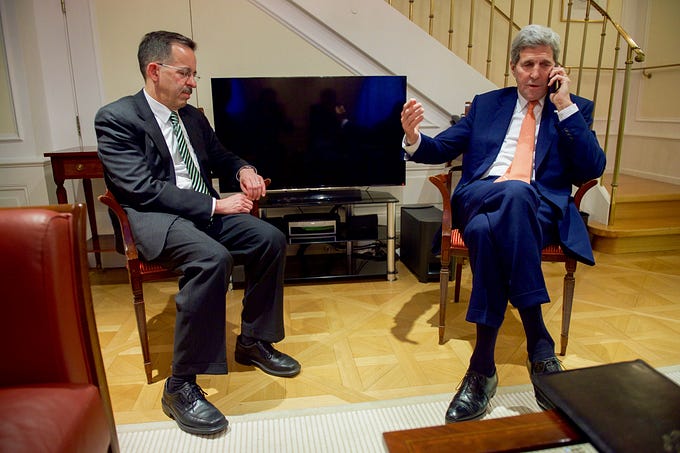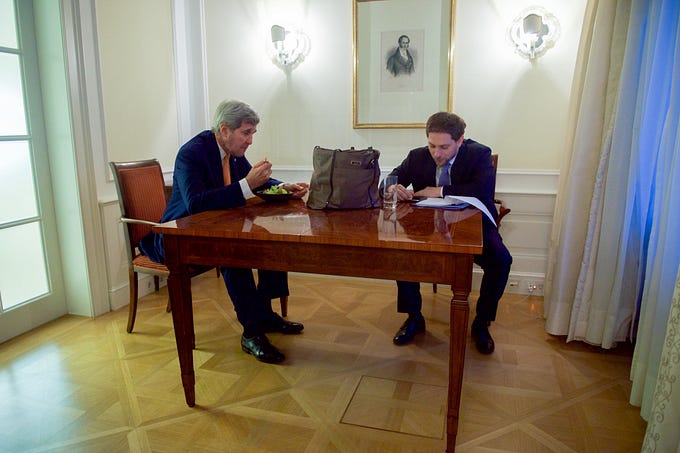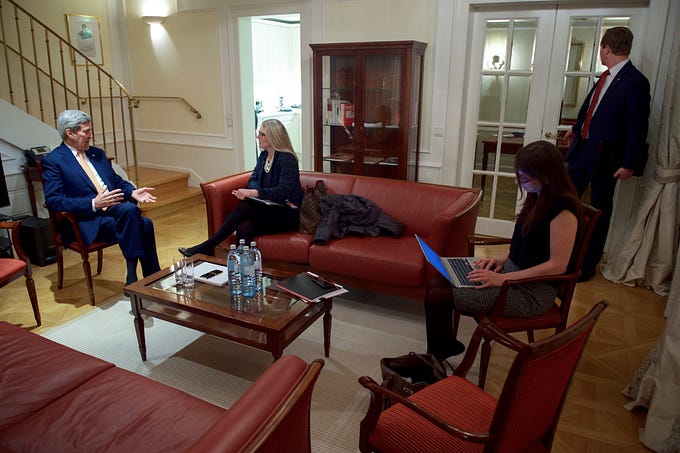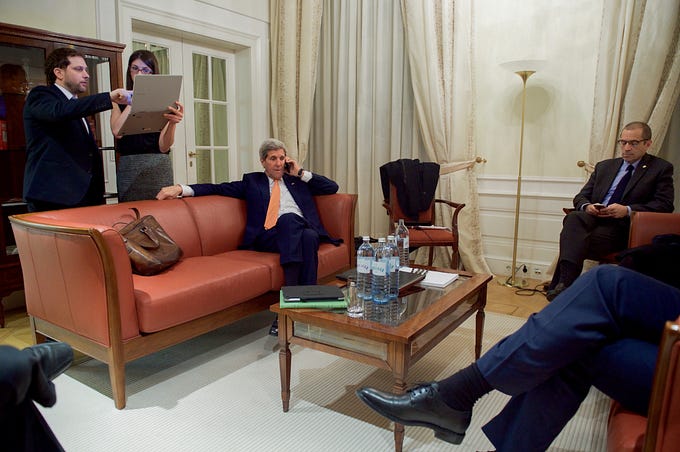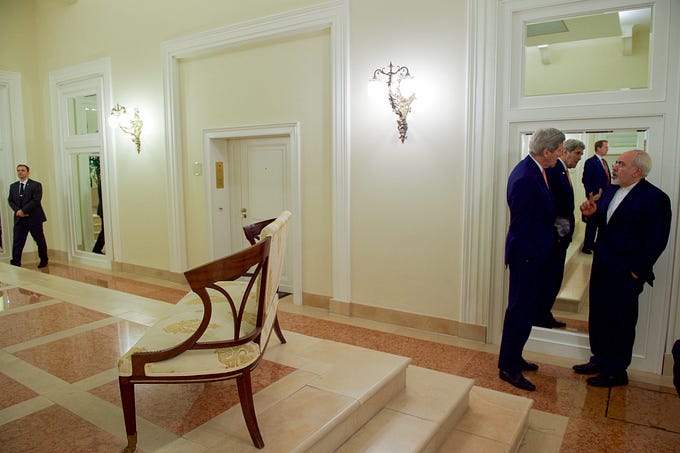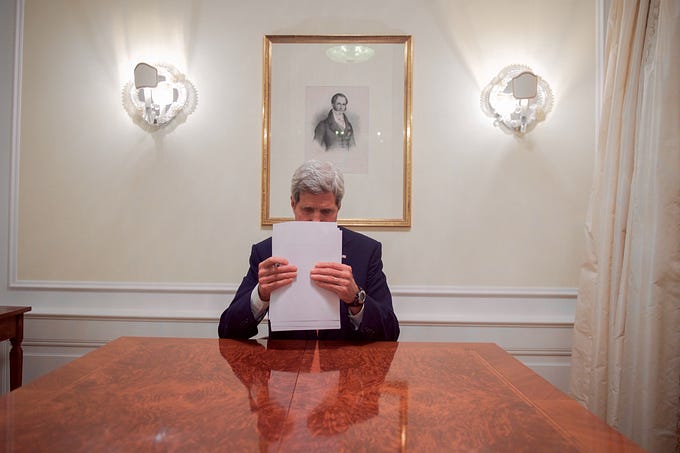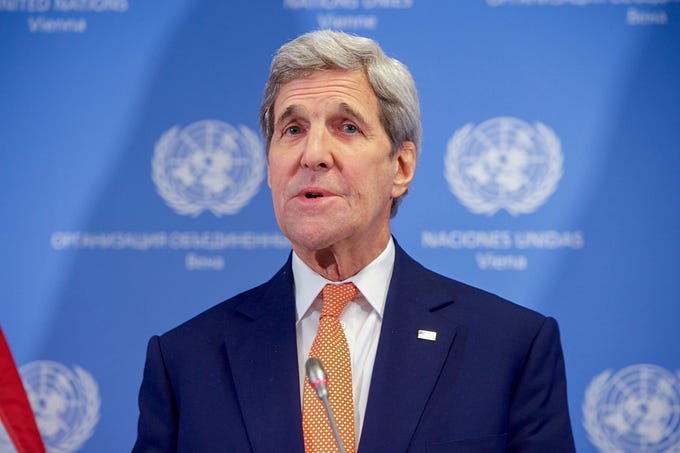As an aside note, one of the 7 in the prisoner swap and 14 people that Obama lifted the Interpol ‘red-notice’ on was the CEO of Mahan Air.
Obama Admin Denies Resumption of U.S.-Iran Commercial Flights
BY:
Obama administration officials on Monday denied that they are holding talks with Iran aimed at resuming direct flights between the two countries, according to information provided by the administration to the Washington Free Beacon.
The head of Iran’s national air carrier, Iran Air, announced over the weekend that negotiations are taking place between the United States and Iran regarding the resumption of direct flights between the countries.
The announcement, which Obama administration officials denied Monday when asked by the Free Beacon, comes as Iran engages in talks with French airplane manufacturer Airbus about the purchase of more than 100 new planes.
Farhad Parvaresh, Iran Air chairman, said that talks are underway with the United States to begin direct flights from America to Iran now that international sanctions on the Islamic Republic have been lifted as part of the recent nuclear agreement.
The “Iran Civil Aviation Organization (ICAO) is conducting talks on direct flights between Iran and the US,” Parvaresh said, according to the country’s state-controlled press. “Daily flights to New York used to take place before the Islamic Revolution and they will hopefully get resumed in near future.”
Obama administration officials say this is not true, citing a number of concerns that would complicate any such resumption.
The administration officials maintain that, to their knowledge, no talks have take place between the U.S. government and Iran regarding the resumption of direct flights.
“There are no U.S. government officials involved in such talks,” a State Department official who was not authorized to speak on record told the Free Beacon.
A resumption of U.S.-Iran flights is “not something we’re considering,” the official said. “There are a number of issues, regulatory and otherwise, that would prevent direct flights between the U.S. and Iran.”
A second administration official also confirmed that direct U.S.-Iran flights are “not something we are considering.”
Primarily, Iranian travelers would be unable to obtain a U.S. travel visa since America has no diplomatic ties with Iran and does not maintain an embassy in the country.
However, dual U.S.-Iranian citizens might benefit from such an arrangement.
Iran is continuing to explore ways in which it can expand its aviation industry. A portion of the nuclear agreement centered on lifting restrictions on Iran’s ability to conduct business with international airlines and plane manufacturers.
Iran has long been operating an aged fleet of commercial planes that are in dire need of spare parts. Since the nuclear deal was implemented and international sanctions were lifted, Iranian officials have begun talks with European airliners and airports.
France’s Airbus confirmed Monday that talks are underway to sell Iran some of the newest commercial jetliners.
The sales could encompass “100-seat turboprops to the 555-seat twin-deck Airbus A380 superjumbo,” according to reports in the U.S. and Iranian media.
“We have been negotiating for 10 months” about the purchase, but “there was no way to pay for them because of banking sanctions,” Iran’s transportation minister told the country’s state-controlled press.
The release by the United States of some $150 billion in once-frozen cash assets has enabled Iran to more seriously negotiate a deal.
“Following the lifting of international economic sanctions, Iran seeks [to] purchase 114 Airbus jets to renovate the aging fleet,” said Iran Air chairman Parvaresh. “Hopefully, a part of the financing will be carried out by the National Development Fund of Iran.”
Iran also is in talks to boost relations with many European airports. This will enable Iran’s commercial airplanes to more easily land, refuel, and resupply.
“Currently, on the basis of a contract with France’s Total, Iran Air flights are supplied with necessary fuel in French airports,” Parvaresh was quoted as saying. “So far, London Heathrow, Amsterdam, Hamburg Fuhlsbuttel and Vienna airports have also resolved the issue for Iranian aircrafts while talks with other fuel companies are underway.”
Michael Rubin, a former Pentagon adviser and terrorism analyst, dismissed the Obama administration’s denial, saying that time and again, Iranian press reports have more accurately reported the status of U.S.-Iran negotiations.
“The sad truth is that the Iranian press has been more accurate than the White House with regard to anything dealing with secret talks or American concessions,” Rubin said, saying the denial “means nothing.”
Rubin also warned that European nations should consider that boosting aviation ties with Iran means that the Iranian Revolutionary Guard Corps will gain access to major airports.
“Why not trust airplane security to Revolutionary Guards baggage handlers?” Rubin asked. “And if they pilfered electronics from luggage, they could avoid the tricky issue of evading what few sanctions remain on electronics.”






